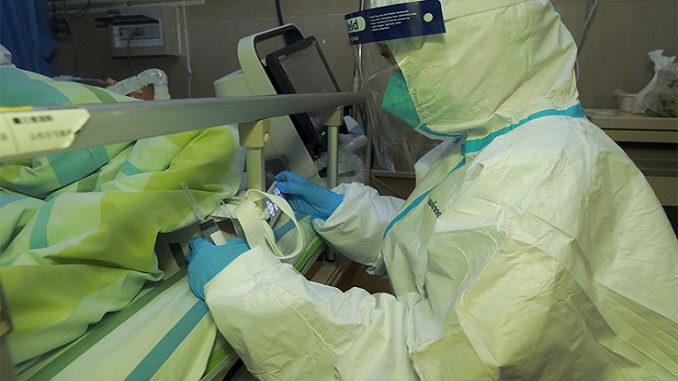
A panel of experts convened by the National Institutes of Health said Tuesday there is “insufficient data” to show convalescent plasma works against the coronavirus, refuting claims made by President Donald Trump and the head of the Food and Drug Administration, CNBC reported.
The panel said it reviewed available data on the treatment and found nothing from “well-controlled, adequately powered randomized clinical trials that demonstrate the efficacy and safety of convalescent plasma” for the treatment of Covid-19. It also said “there was no difference in 7-day survival” for patients, contradicting FDA Commissioner Dr. Stephen Hahn, who said the treatment resulted in a 35% improvement in survival.
“There are insufficient data to recommend either for or against the use of convalescent plasma for the treatment of COVID-19,” the panel said in a statement. “Convalescent plasma should not be considered standard of care for the treatment of patients with COVID-19.”
There are no formally approved drugs or vaccines for the coronavirus. The plasma is taken from patients who have recovered from Covid-19 and developed antibodies against the virus and then infused in sick patients. It is one of several therapies being tested as a potential treatment.
The FDA granted the treatment emergency authorization on Aug. 23, allowing U.S. health-care providers to use the plasma to treat suspected or confirmed infections in hospitalized patients.
Results of a study by the Mayo Clinic that the FDA cited in its authorization of the plasma treatment indicates that patients below age 80 who were not on a respirator and received plasma with a high level of antibodies within three days of diagnosis fared better than patients who received plasma with a low level of antibodies. A weakness of the Mayo study was that it did not include a controlled group of patients receiving a placebo.
The FDA’s decision to authorize emergency use came a day after Trump accused the FDA of delaying enrollment in clinical trials for Covid-19 vaccines or therapeutics. The criticism from Trump and action from the FDA led some scientists to say the emergency use was politically motivated, especially since it was announced on the eve of the Republican National Convention.
Hahn, under intense criticism, later walked back comments he made on the benefits of convalescent plasma, saying he could have done a better job of explaining the data on its effectiveness.
“I have been criticized for remarks I made Sunday night about the benefits of convalescent plasma. The criticism is entirely justified,” Hahn tweeted Aug. 24. “What I should have said better is that the data show a relative risk reduction not an absolute risk reduction.”
He also said he wasn’t bowing to pressure from Trump. “The decision was made by FDA career scientists based on data submitted a few weeks ago,” Hahn tweeted.
“We looked at the Mayo Clinic data,” he said during a CBS interview on Aug 25. “The Mayo Clinic identified a group of patients, certain patients that it looked like this benefited the most, that the antibodies benefited them the most. We asked for additional validation data that came in, which supported that, meaning that comparing those patients who got high concentrations of antibodies versus those that got low concentrations of antibodies.”
The FDA has issued emergency use authorization for several coronavirus tests and some drugs. In May, the agency granted antiviral remdesivir the authorization, allowing hospitals and doctors to use the drug on hospitalized Covid-19 patients. Hydroxychloroquine was also granted emergency authorization, but the FDA later removed the designation once the agency found the malaria drug was unlikely to be effective.




Be the first to comment